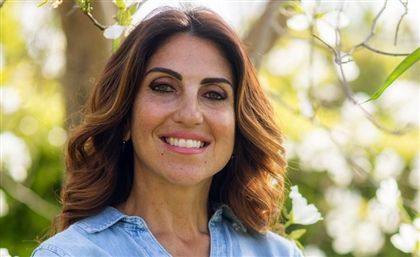The Real Deal With General Partner at Algebra Ventures Laila Hassan
Laila Hassan, General Partner at Algebra Ventures and Venture Partner at 500 Startups MENA, shares how blindingly bright success stories may not be as important as tales about overcoming failures.

StartupScene’s op-ed series ‘The Real Deal’ asks some of the region’s most dynamic entrepreneurs to share their stories, passions, struggles and personal thoughts on the workings of the ecosystem and their entrepreneurial journeys. This is a glimpse behind the headlines, the raises and the often misleadingly tantalizing veneer of the fast-track.
This week our guest writer is Laila Hassan, General Partner at Algebra Ventures and Venture Partner at 500 Global where she is responsible for the 500's first MENA Fund (500 Falcons).
A seasoned VC veteran, Hassan has worked as a consultant for a slew of startups assisting them in developing operational and fundraising schemes, while leading investment assessments and providing recommendations to VCs and family offices in the region.
While completing her MBA from London Business School, Hassan joined the investment banking division at Morgan Stanley as a summer associate, after which she returned to Egypt to pursue a career in its thriving startup community. Prior to her postgraduate studies, she worked as an associate at Qalaa Holdings, a Cairo-based regional private equity firm, where she focused on the alternative energy, oil and gas and glass sectors.
Despite (or perhaps because of) her front row seat to meteoric rises and record breaking raises, Hassan is adamant that we focus far too much on hyperbolic success stories rather than the ferocious failures upon which some of the most formidable foundations are built.
This is Laila Hassan’s REAL DEAL...
From thndr to Swvl, Trella to Anghami, there’s been no shortage of success stories in the MENA startup space over the past five years. We’ve seen foreign listings, massive fundraising, brilliant ideas and startups meteorically rising to become household brands.
But amid all the fireworks, we often forget to appreciate one crucial aspect of all success stories: the failures that were overcome.
The narratives surrounding successful people often portray them as infallible prodigies confidently leaping towards success. Like movie superheros, their success is their destiny, not the result of hard work mixed with good luck. Failure? It was never on the table. Rejections? Nothing but transient hiccups to be quickly overcome.
Instead of getting motivated by such narratives, we start wondering if we can ever achieve similar success, and self doubt inevitably seeps in. I love the honesty of Ahmed Hammoud, founder of thndr, in his own ‘The Real Deal’ piece when he mentioned how self doubt creeps in because this is something we all go through.
It would be refreshing if more successful people talked about the struggles of the modern workplace: being sidelined in promotions, halting a career for maternity, living in other people’s shadows, impostor syndrome and so on. The message being that we mostly learn from mistakes not successes, and that failure is an integral part of the process.
Think about Mohamed Salah. By many measures he’s one of the most accomplished humans on the planet. He faced hardships growing up, got rejected by Zamalek football club, played in small European teams, was unappreciated in Chelsea in the Premier League before leaving to Italy then coming back to superstardom in Liverpool. He taught us how to accept failure publicly; Italy was a step back from Chelsea, but instead of giving up he realized that his time in the EPL had not come yet. He reset his career in Italy and came back stronger.
Millions of people in Egypt have cheered Salah every step of the way for an obvious reason: he faced and overcame the same hurdles they face everyday. If he could beat the odds, they could too.
Failure can be quite traumatic, and for some, shameful. It can be a haunting experience that leaves us unable to function. I, for one, have caught myself anxious about failing publicly, but I try to acknowledge it when it happens, cope calmly with it, and mentally prepare to preempt it in the future.
Understanding people’s failures and shortcomings reveals how much they are motivated to achieve. This is the most critical determinant of success. Talking to founders, especially now with our ‘Founder’s First’ investment approach at Algebra Ventures, it is just as important to look at a person’s drive as much as their experience.
I’m a strong believer that - at the end of the day - drive will outwin intelligence and connections. I‘m always looking to back founders who have something to prove to themselves, whose past failures fuel their desire to excel.
That’s why we shouldn’t shy away from sharing stories about our not-so-successful experiences, as overcoming failure is often the superpower that wins us the game.
I want to start a movement to recognize failure, own up to it and celebrate overcoming it. Come join me.
- Previous Article Dr.Sisilove or How (Not) To Diffuse A Bomb
- Next Article Cairo University Council to Establish New Private University in Luxor
Trending This Week
-
Apr 10, 2024
-
Apr 10, 2024
























